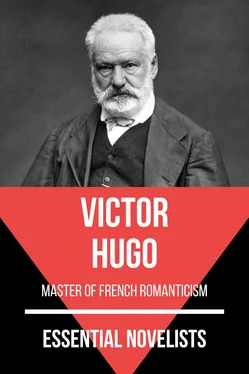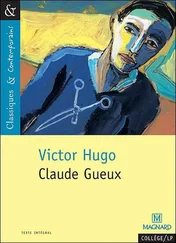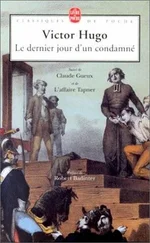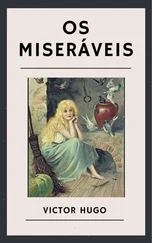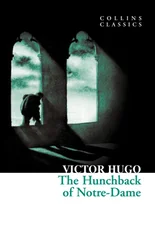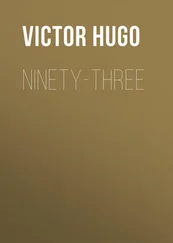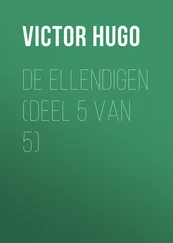All the rooms in the house, without exception, those on the ground floor as well as those on the first floor, were white-washed, which is a fashion in barracks and hospitals.
However, in their latter years, Madame Magloire discovered beneath the paper which had been washed over, paintings, ornamenting the apartment of Mademoiselle Baptistine, as we shall see further on. Before becoming a hospital, this house had been the ancient parliament house of the Bourgeois. Hence this decoration. The chambers were paved in red bricks, which were washed every week, with straw mats in front of all the beds. Altogether, this dwelling, which was attended to by the two women, was exquisitely clean from top to bottom. This was the sole luxury which the Bishop permitted. He said, “That takes nothing from the poor.”
It must be confessed, however, that he still retained from his former possessions six silver knives and forks and a soup-ladle, which Madame Magloire contemplated every day with delight, as they glistened splendidly upon the coarse linen cloth. And since we are now painting the Bishop of D—— as he was in reality, we must add that he had said more than once, “I find it difficult to renounce eating from silver dishes.”
To this silverware must be added two large candlesticks of massive silver, which he had inherited from a great-aunt. These candlesticks held two wax candles, and usually figured on the Bishop’s chimney-piece. When he had any one to dinner, Madame Magloire lighted the two candles and set the candlesticks on the table.
In the Bishop’s own chamber, at the head of his bed, there was a small cupboard, in which Madame Magloire locked up the six silver knives and forks and the big spoon every night. But it is necessary to add, that the key was never removed.
The garden, which had been rather spoiled by the ugly buildings which we have mentioned, was composed of four alleys in cross-form, radiating from a tank. Another walk made the circuit of the garden, and skirted the white wall which enclosed it. These alleys left behind them four square plots rimmed with box. In three of these, Madame Magloire cultivated vegetables; in the fourth, the Bishop had planted some flowers; here and there stood a few fruit-trees. Madame Magloire had once remarked, with a sort of gentle malice: “Monseigneur, you who turn everything to account, have, nevertheless, one useless plot. It would be better to grow salads there than bouquets.” “Madame Magloire,” retorted the Bishop, “you are mistaken. The beautiful is as useful as the useful.” He added after a pause, “More so, perhaps.”
This plot, consisting of three or four beds, occupied the Bishop almost as much as did his books. He liked to pass an hour or two there, trimming, hoeing, and making holes here and there in the earth, into which he dropped seeds. He was not as hostile to insects as a gardener could have wished to see him. Moreover, he made no pretensions to botany; he ignored groups and consistency; he made not the slightest effort to decide between Tournefort and the natural method; he took part neither with the buds against the cotyledons, nor with Jussieu against Linnæus. He did not study plants; he loved flowers. He respected learned men greatly; he respected the ignorant still more; and, without ever failing in these two respects, he watered his flower-beds every summer evening with a tin watering-pot painted green.
The house had not a single door which could be locked. The door of the dining-room, which, as we have said, opened directly on the cathedral square, had formerly been ornamented with locks and bolts like the door of a prison. The Bishop had had all this ironwork removed, and this door was never fastened, either by night or by day, with anything except the latch. All that the first passer-by had to do at any hour, was to give it a push. At first, the two women had been very much tried by this door, which was never fastened, but Monsieur de D—— had said to them, “Have bolts put on your rooms, if that will please you.” They had ended by sharing his confidence, or by at least acting as though they shared it. Madame Magloire alone had frights from time to time. As for the Bishop, his thought can be found explained, or at least indicated, in the three lines which he wrote on the margin of a Bible, “This is the shade of difference: the door of the physician should never be shut, the door of the priest should always be open.”
On another book, entitled Philosophy of the Medical Science, he had written this other note: “Am not I a physician like them? I also have my patients, and then, too, I have some whom I call my unfortunates.”
Again he wrote: “Do not inquire the name of him who asks a shelter of you. The very man who is embarrassed by his name is the one who needs shelter.”
It chanced that a worthy curé, I know not whether it was the curé of Couloubroux or the curé of Pompierry, took it into his head to ask him one day, probably at the instigation of Madame Magloire, whether Monsieur was sure that he was not committing an indiscretion, to a certain extent, in leaving his door unfastened day and night, at the mercy of any one who should choose to enter, and whether, in short, he did not fear lest some misfortune might occur in a house so little guarded. The Bishop touched his shoulder, with gentle gravity, and said to him, “Nisi Dominus custodierit domum, in vanum vigilant qui custodiunt eam,” Unless the Lord guard the house, in vain do they watch who guard it.
Then he spoke of something else.
He was fond of saying, “There is a bravery of the priest as well as the bravery of a colonel of dragoons,—only,” he added, “ours must be tranquil.”
Chapter VII
Cravatte
––––––––
IT IS HERE THAT A FACT falls naturally into place, which we must not omit, because it is one of the sort which show us best what sort of a man the Bishop of D—— was.
After the destruction of the band of Gaspard Bès, who had infested the gorges of Ollioules, one of his lieutenants, Cravatte, took refuge in the mountains. He concealed himself for some time with his bandits, the remnant of Gaspard Bès’s troop, in the county of Nice; then he made his way to Piédmont, and suddenly reappeared in France, in the vicinity of Barcelonette. He was first seen at Jauziers, then at Tuiles. He hid himself in the caverns of the Joug-de-l’Aigle, and thence he descended towards the hamlets and villages through the ravines of Ubaye and Ubayette.
He even pushed as far as Embrun, entered the cathedral one night, and despoiled the sacristy. His highway robberies laid waste the country-side. The gendarmes were set on his track, but in vain. He always escaped; sometimes he resisted by main force. He was a bold wretch. In the midst of all this terror the Bishop arrived. He was making his circuit to Chastelar. The mayor came to meet him, and urged him to retrace his steps. Cravatte was in possession of the mountains as far as Arche, and beyond; there was danger even with an escort; it merely exposed three or four unfortunate gendarmes to no purpose.
“Therefore,” said the Bishop, “I intend to go without escort.”
“You do not really mean that, Monseigneur!” exclaimed the mayor.
“I do mean it so thoroughly that I absolutely refuse any gendarmes, and shall set out in an hour.”
“Set out?”
“Set out.”
“Alone?”
“Alone.”
“Monseigneur, you will not do that!”
“There exists yonder in the mountains,” said the Bishop, “a tiny community no bigger than that, which I have not seen for three years. They are my good friends, those gentle and honest shepherds. They own one goat out of every thirty that they tend. They make very pretty woollen cords of various colors, and they play the mountain airs on little flutes with six holes. They need to be told of the good God now and then. What would they say to a bishop who was afraid? What would they say if I did not go?”
Читать дальше
